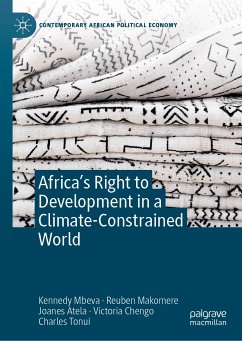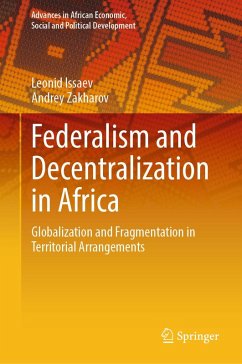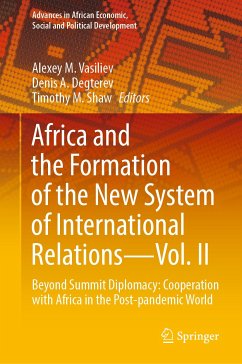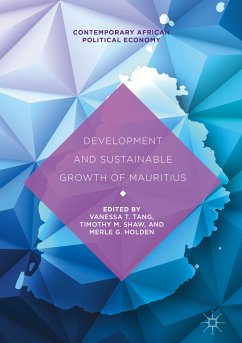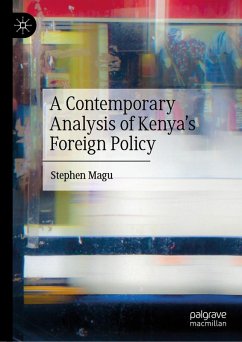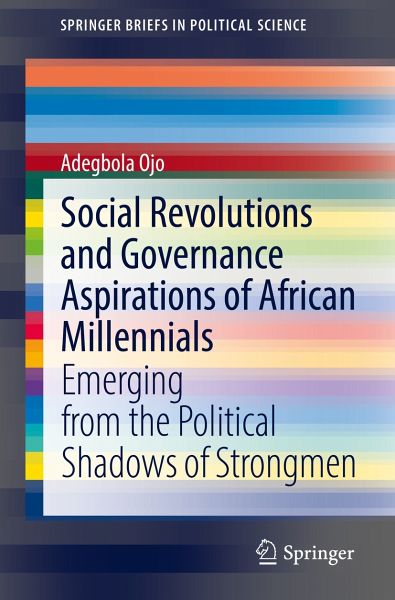
Social Revolutions and Governance Aspirations of African Millennials (eBook, PDF)
Emerging from the Political Shadows of Strongmen
Versandkostenfrei!
Sofort per Download lieferbar
48,95 €
inkl. MwSt.
Weitere Ausgaben:

PAYBACK Punkte
24 °P sammeln!
This book discusses the role of millennials in political leadership and governance in Africa going forward. Africa is in the process of significant change. The nature of this change, dimensions, and what change might bring will depend on young people who now represent three quarters of the population of the continent. This book contributes to ongoing discussions and provides a pathway and guide for a new generation of young African leaders to emerge and not to miss the opportunity for real transformative change.The book provides a thought-provoking analysis of the political and economic system...
This book discusses the role of millennials in political leadership and governance in Africa going forward. Africa is in the process of significant change. The nature of this change, dimensions, and what change might bring will depend on young people who now represent three quarters of the population of the continent. This book contributes to ongoing discussions and provides a pathway and guide for a new generation of young African leaders to emerge and not to miss the opportunity for real transformative change.
The book provides a thought-provoking analysis of the political and economic systems in Africa. In its analysis of development challenges and opportunities, it shows how millennials can be the catalyst for change in leadership and governance behavior. Consequently, the book argues how this can improve the fortunes of Africa's estimated 1.3 billion people. It is inspired by the factual circumstances of Africa's significant history, a deep understanding of current powerrelations, and motivated by an ambitious vision of Africa's role in the world.
The book combines a deep explanation of concepts with a range of techniques and recent illustrative applications. It also embraces a multi-method approach that allows for the embedding of primary and secondary forms of data. A cross-fertilization of ontological arguments and analytical techniques from a range of allied disciplines further contribute to the book's novelty. The book appeals to multiple stakeholders including students, researchers, practitioners, and policy-makers.
The book provides a thought-provoking analysis of the political and economic systems in Africa. In its analysis of development challenges and opportunities, it shows how millennials can be the catalyst for change in leadership and governance behavior. Consequently, the book argues how this can improve the fortunes of Africa's estimated 1.3 billion people. It is inspired by the factual circumstances of Africa's significant history, a deep understanding of current powerrelations, and motivated by an ambitious vision of Africa's role in the world.
The book combines a deep explanation of concepts with a range of techniques and recent illustrative applications. It also embraces a multi-method approach that allows for the embedding of primary and secondary forms of data. A cross-fertilization of ontological arguments and analytical techniques from a range of allied disciplines further contribute to the book's novelty. The book appeals to multiple stakeholders including students, researchers, practitioners, and policy-makers.
Dieser Download kann aus rechtlichen Gründen nur mit Rechnungsadresse in A, B, BG, CY, CZ, D, DK, EW, E, FIN, F, GR, HR, H, IRL, I, LT, L, LR, M, NL, PL, P, R, S, SLO, SK ausgeliefert werden.





